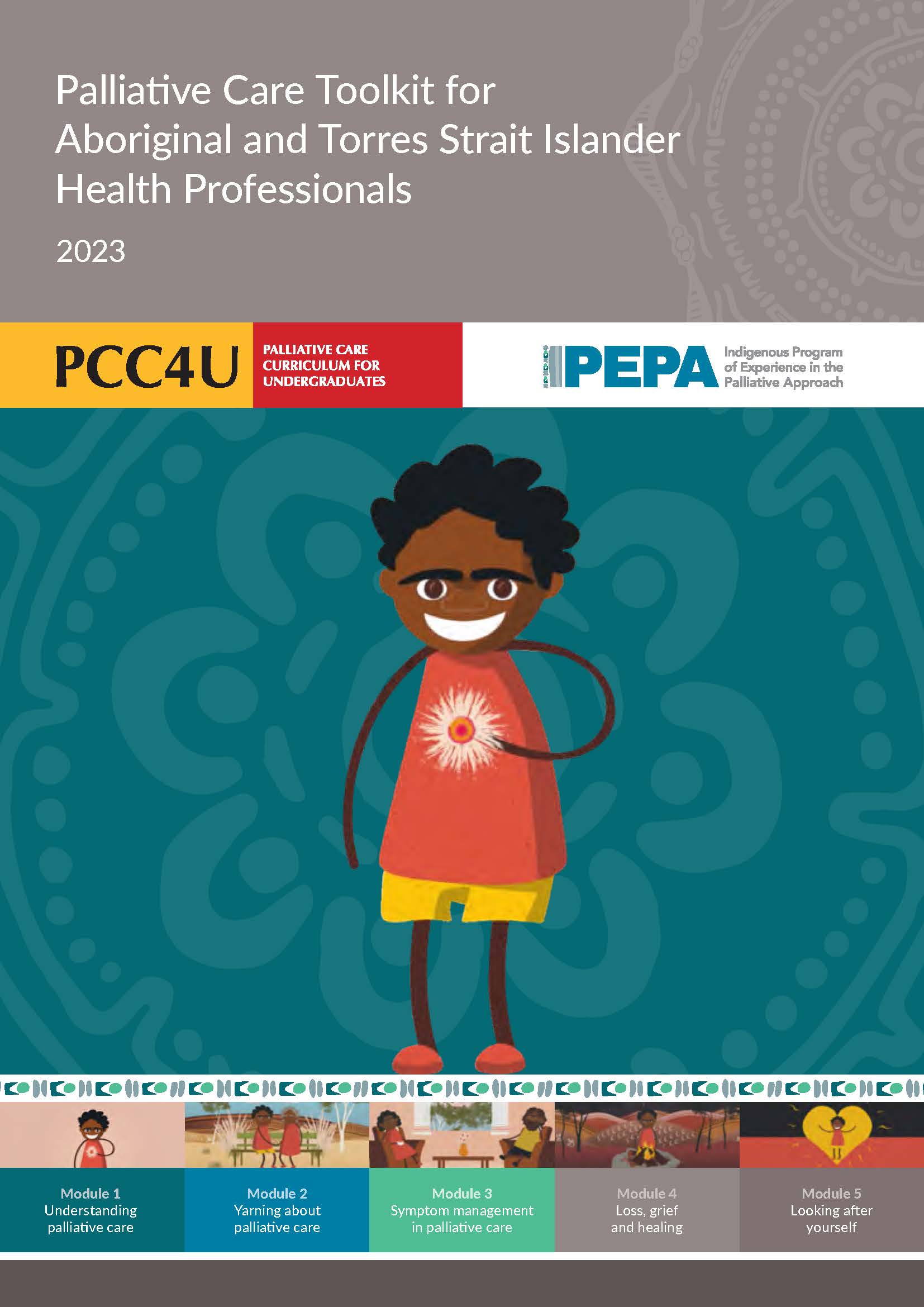
Access 6 training modules covering the key concepts of palliative care. These modules can be completed in any order, however it is recommended that you commence with Module 1 (The Principles of Palliative Care) in order to gain a good understanding of the foundation principles and standards that support palliative care in Australia. The modules consist of a number of short lessons and are designed as a resource which you can exit, and resume when you have available time. Each module will take approximately 90 minutes to complete in total.

Allied health professionals have an important role in supporting people affected by life-limiting illness. In all healthcare contexts, the multidisciplinary team works closely with individuals and families during the end-stages of life. Developing an understanding of the principles of the palliative approach to care, and the skills required to assess and manage people’s needs is important for all allied health professionals.
A print/PDF writable version of this learning guide is also available for download from the PEPA website.
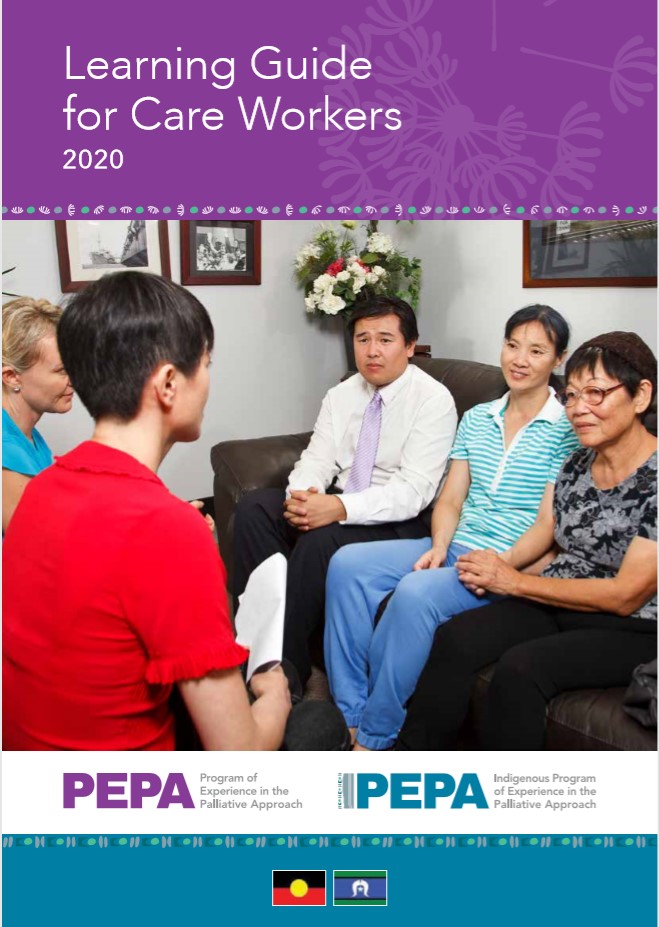
As a Care Worker, you have an important role in providing comfort and support to people affected by life-limiting illness. In community, inpatient and residential care settings, care workers spend considerable time with people and have important opportunities to care for and comfort individuals, families and carers during the end-stages of life.
A print/PDF writable version of this learning guide is also available for download from the PEPA website.

As a Disability Support Worker, you have an important role in supporting people living with disability and especially those also have a serious or life-limiting illness. Whether your role is in the community, hospital or residential care setting, you will no doubt be involved in providing comfort and support to people living with disability who have serious illness and are nearing the end stages of life.
A print/PDF writable version of this learning guide is available for download here or from the PEPA website.
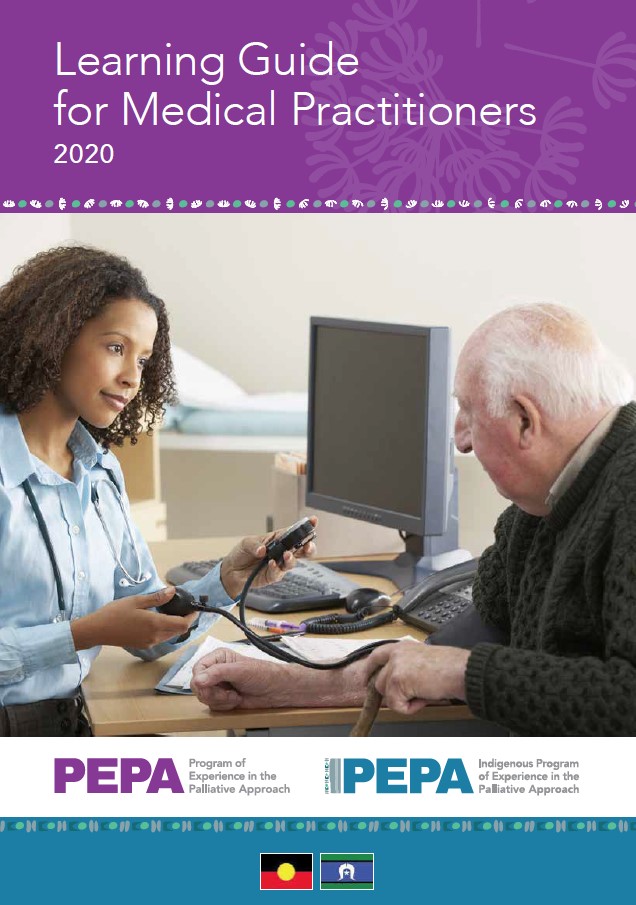
This learning guide has been developed by a team of palliative care experts and reviewed by clinicians with extensive palliative care experience, including current medical practitioners. They will support medical practitioners to build their capacity, and improve networks between themselves and specialist palliative care services.
A print / PDF writable version of this learning guide is also available for download from the PEPA website.
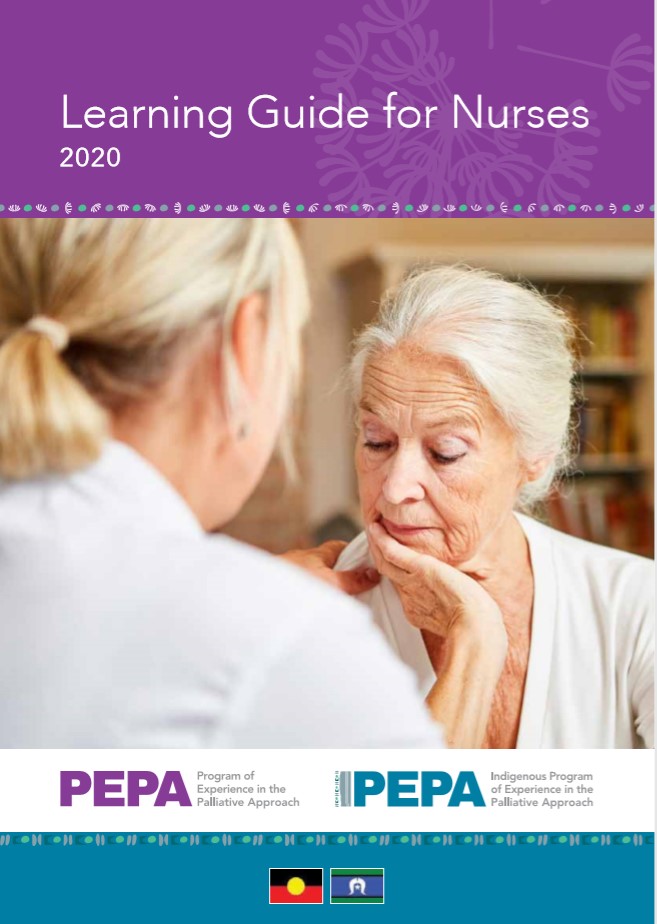
A print/PDF writable version of this learning guide is also available for download from the PEPA website.
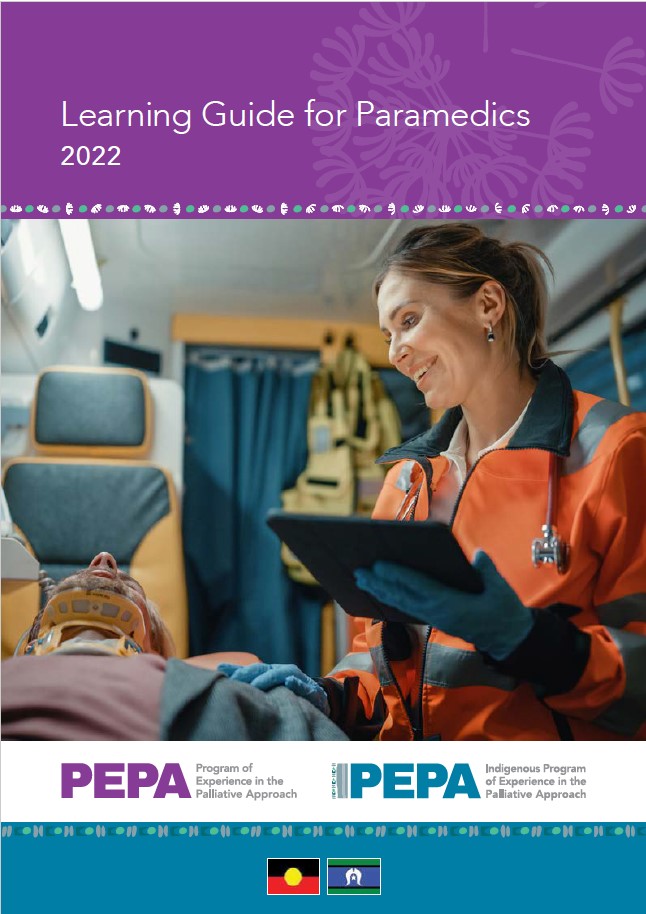
To support high-quality care delivery, paramedics need to develop an understanding of the philosophy and practice of palliative care and the role that they have in providing palliative care. Essential areas of focus include effective communication with patients and families, alongside an understanding of symptom management, legal and ethical concerns and the role of the broader healthcare team in providing palliative care.
